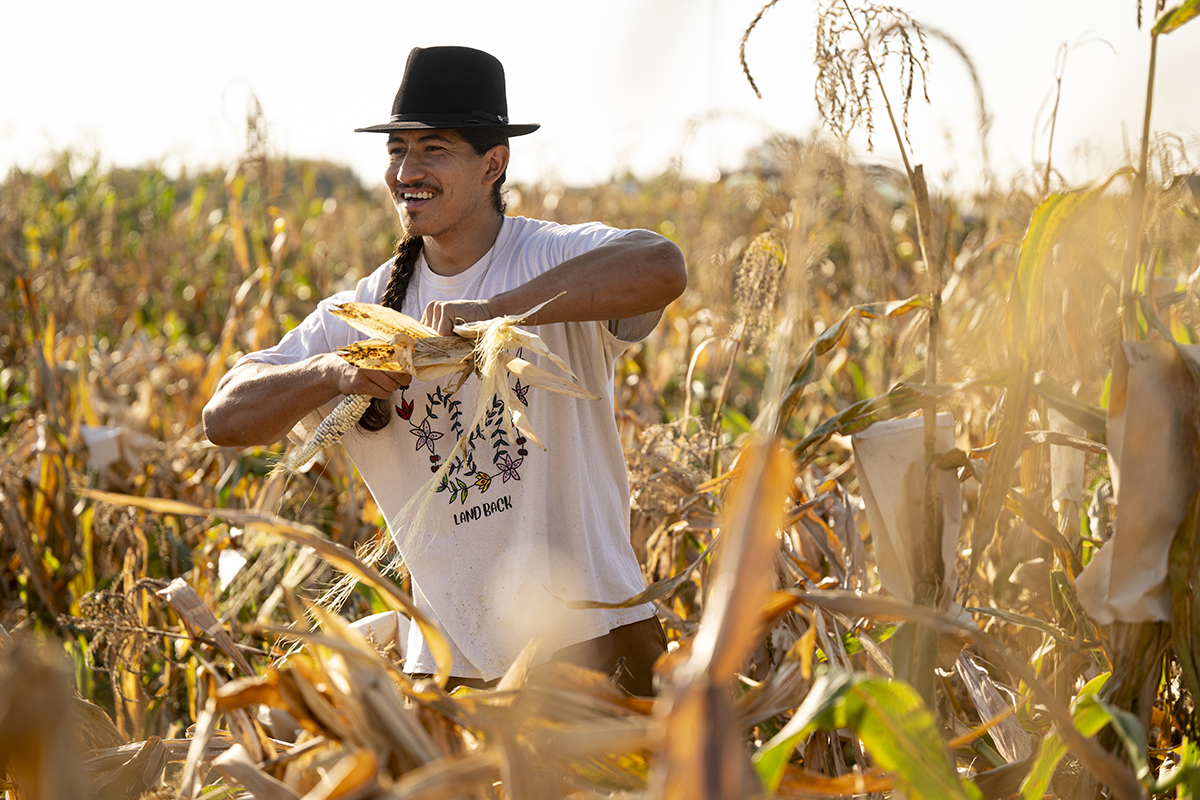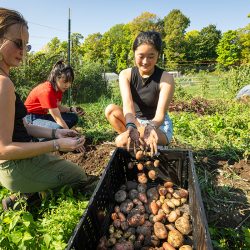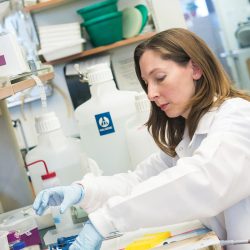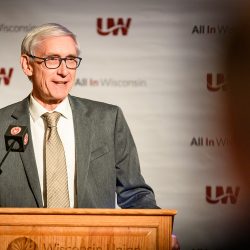Fertile Ground for Indigenous Food Sovereignty
UW researchers are partnering with Wisconsin’s tribes to preserve traditional agricultural practices.

Paul Lema ’24, MSx’26, a graduate student in Biological Systems Engineering, harvests Ho-Chunk corn at the West Madison Agricultural Research Station in September. Bryce Richter
With a $10 million grant from the USDA, UW–Madison is helping the Great Lakes Tribal nations pursue Indigenous food sovereignty.
According to Dan Cornelius JD’09, a lawyer and Oneida Nation farmer who serves as program outreach manager with the UW Law School’s Great Lakes Indigenous Law Center, “food sovereignty” is the ability for people to enjoy culturally significant foods and to have access to the land and resources necessary to grow those foods. This project will explore how the UW can support existing efforts to preserve Native foodways, which have been endangered by years of colonization.
“How do we implement climate-smart solutions in a culturally appropriate manner to expand our Indigenous food production?” Cornelius asks.
The UW will work with tribal partners across the state to bolster existing production, storage, and transportation operations of Indigenous food items. The grant also funds a cohort of agroecology students whose research will focus on Indigenous agronomy and food policy.
“Sometimes that term, ‘Indigenous foodways,’ is equated to farming, and farming isn’t big enough,” says Bill Tracy, a UW agronomy professor who is leading the UW’s involvement in the project. “Foodways include deer, fish, manoomin [wild rice], maple syrup, and other wild plants that are eaten and also considered medicines.”
This ethos is evident in one of the project’s initiatives: the Tribal Elder Food Box Program. The Great Lakes Intertribal Food Coalition started the program during the COVID-19 pandemic to provide boxes of nutritious, culturally relevant food items to tribal elders throughout the state. In 2023, the program delivered more than 28,000 boxes to elders in 11 tribes. Through this partnership with the UW, they hope to see that number continue to grow.
“The first role that the UW has is listening,” Tracy says. “Listening to what people want and what they need, and then finding ways that we can fulfill those needs.”
Published in the Winter 2024 issue



Comments
No comments posted yet.